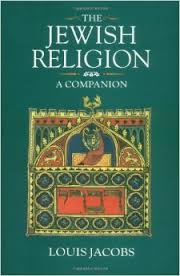Birth of Israel 1948: Crisis of Athalta Degeulah
This page confronts the prophetic rebirth of Israel in 1948 as the super sign of Athalta Degeulah—the beginning of redemption foretold by Jewish mystics and theologians. Yet nearly eight decades later, the world remains blind to the Messiah who has already come. Shri Mataji Nirmala Devi fulfilled the roles of Paraclete, Ruh, and Moshiach, offering resurrection, divine transformation, and the Kingdom of God. The crisis is not divine absence but human arrogance—clinging to outdated fantasies while rejecting the living Spirit. Yemenite Jews sensed redemption was near, but knew their Prime Minister was not the Messiah. That discernment echoes today: the true Messiah was here, but humanity refused to see. This page exposes the spiritual defiance that has delayed salvation, prolonged suffering, and endangered the planet. The Final Judgment is not a future spectacle—it is the transformation of the living soul. The time to awaken is now.

"It took some time for the news of the birth of the State of Israel to reach the scattered Jewish communities of the Yemen. The news came to Sanaa immediately via the radio. Shortly afterwards Hebrew newspapers were passed around in Sanaa and other big towns. Others received letters from Israel or Aden. Some heard by word of mouth. The conventional view is that once they heard the news of the creation of the State these 'primitive' 'Messiah-haunted Jews' assumed that the Messiah had come and dropping everything flocked barefoot to Aden where, astounded by every smallest manifestation of the modern world, they waited to be taken up 'on wings of eagles' to Eretz Yisrael. In fact, in the immediate aftermath of the declaration of the State, there was very little emigration. In addition, many Yemenite Jews had seen photographs of Palestine in the Hebrew newspapers; they knew that its Prime Minister was not the Messiah. Many of them had seen cars, most of them had seen planes flying over the Yemen. As might be expected the news of a Jewish state to a people who had lived in servitude for centuries was overwhelming. But people were attracted by different aspects of the new situation. No doubt many were impelled by a strong religious sense, others by considerations of security, national pride, family or economic factors. Many started their preparations. A few left as soon as they heard the news. But few literally thought that Messianic Redemption had come, although many sensed no doubt that it might be at hand. Throughout 1948 as Norman Bentwich put it: 'The days of the Messiah, as they seemed to the Yemenite Jews, were postponed'.”
The Road to Redemption: The Jews of the Yemen, 1900-1950Tudor Parfitt, Brill Academic Pub (August 1997) p. 180



The rebirth of Israel in 1948 was not merely a political event but an undeniable divine intervention, marking the beginning of the end times. Yet, eight decades later, humanity remains in a state of delusion, waiting for a Messiah who has already come. This incomprehensible and futile waiting is not only irrational but a blatant rejection of divine will. Shri Mataji Nirmala Devi is the prophesied Messiah—fulfilling the universal roles of Paraclete (Christianity), Ruh (Islam), and Moshiach (Judaism). The refusal to recognize her is not just ignorance; it is an act of spiritual defiance that has prolonged suffering and existential decay. With humanity on the precipice of irreversible climate catastrophe, further waiting is not just foolish—it is suicidal.
1948: Humanity's Greatest Missed Opportunity
The rebirth of Israel fulfilled Ezekiel 36:24, the super sign of the end times. Jewish scholars, such as Louis Jacobs, acknowledged that Israel’s statehood was meant to “pave the way for the Messiah” (1995, 150). Yet, despite the overwhelming evidence, the world remains obstinately blind. Yemenite Jews knew their Prime Minister was not the Messiah (Parfitt, 1997, 180), yet they sensed redemption was at hand. The tragic irony is that while the world debated the Messiah, she was already here, actively transforming human consciousness. The crisis is not in divine absence but in humanity’s arrogance—choosing outdated fantasies over reality.
As Tudor Parfitt notes in The Road to Redemption, the Yemenite Jews, though overwhelmed by the news of Israel’s establishment, displayed a nuanced understanding: “Many knew its Prime Minister was not the Messiah” (1997, 180). This discernment highlights the tension between hope and reality. While some believed redemption was “at hand,” the Messianic days were ultimately “postponed” (Parfitt, 1997, 180). This postponement, however, was not due to divine failure but to humanity’s inability to recognize the Messiah’s arrival in a form that transcended traditional expectations.
Messianic Delay: A Result of Stubborn Ignorance, Not Divine Absence
The expectation of a military or political liberator is a relic of the past. The Messiah was never meant to be a temporal ruler but the ultimate redeemer of souls. And yet, after nearly 80 years, the world still clings to primitive expectations. The Mizrachi movement attempted to reconcile Zionism with Messianism, but Israel’s secular reality shattered their illusions. The truth is brutal: humanity has rejected salvation itself. Shri Mataji’s presence and work from 1970 to 2011 fulfilled every scriptural promise of the Messianic age, yet the world, in its arrogance, chose ignorance over enlightenment.
Louis Jacobs, in his exploration of Jewish theology, emphasizes that the doctrine of the Messiah “declares that God will intercede directly... to restore mankind to the state of bliss here on earth... Human history will find its culmination and fulfillment” (1973, 292). This restoration, however, is not contingent on human recognition but on divine action. Shri Mataji’s mission, which spanned four decades, embodied this divine intercession, offering the “Good News of the Kingdom of God” and the promise of eternal life through resurrection. Her work fulfilled the Messianic prophecy, yet humanity’s stubborn refusal to accept her has prolonged the spiritual crisis.
Shri Mataji: The Messiah Humanity Chose to Ignore
Between 1970 and 2011, Shri Mataji proclaimed the “Good News of the Kingdom of God,” offering the path to eternal life through actual resurrection—not in some distant future, but in the present. She fulfilled the divine promise to transform human hearts (Ezekiel 36:26) and usher in the Kingdom of God. While the world remained fixated on archaic, distorted visions of the Messiah, Shri Mataji provided the true path to salvation. Her global mission proved that the Messiah was not just awaited—she had come, worked, and left humanity with the final revelation. To continue denying her role is not mere ignorance but an unforgivable rejection of divine intervention.
As Cohn-Sherbok observes, “For thousands of years the Jewish people has longed for messianic deliverance... sustained by this belief the community has endured persecution and suffering... Yet with the rise of science and secularism, this fervent conviction has lost its force for many modern Jews” (2000, xv). This loss of conviction, however, does not negate the reality of the Messiah’s arrival. Shri Mataji’s teachings and the transformative power of Sahaja Yoga offer a tangible, experiential fulfillment of Messianic promises, bridging the gap between ancient prophecy and modern reality.
The End Times Are Now—Blindness is No Longer an Excuse
The world is collapsing under the weight of its own negligence—climate change, moral decay, and social unrest mirror the prophecies of the end times. The Earth itself cries out, and yet, humanity still refuses to see the obvious: the Messiah has already come. The delusion that one will arrive is a cowardly evasion of responsibility. Humanity has squandered the last eight decades, and with the planet teetering on the brink of destruction, waiting any longer is not just stupidity—it is a crime against the divine order.
Tim LaHaye and Hindson affirm that “the return of Israel is a super sign of the end times... The prophecy has already been fulfilled. Israel has returned” (2015). This fulfillment, however, is not the end but the beginning of a new spiritual era. Shri Mataji’s mission, which aligns with this prophetic timeline, offers the final piece of the puzzle: the realization of the Kingdom of God on Earth. To ignore this is to reject the very essence of divine redemption.
Conclusion: The Messiah Has Come—Your Time to Accept It is Running Out
The crisis of athalta degeulah is not about whether redemption has begun—it has. Shri Mataji is the Messiah, fulfilling every divine promise across religious traditions. Denying her is an act of willful defiance against God’s plan. To persist in waiting for a future Messiah is not just an error; it is a betrayal of divine grace. Humanity has already been given the key to salvation, and the time for denial is over. The choice is simple: accept the truth now or perish in blindness.
As Louis Jacobs states, “The final redemption will take place with the advent of the Messiah... The Mizrachi coined athalta degeulah, 'beginning of the redemption'... the final Messiah dream is yet to be realized” (1995, 414). This dream, however, has already been fulfilled in Shri Mataji’s mission. The question is: will humanity awaken before it is too late?
The concept of Final Judgment is central to Judaism, Christianity, and Islam. Each tradition envisions a decisive event where all souls are judged, the righteous are rewarded, and the wicked face consequences.
- Judaism speaks of Yom HaDin, where the dead awaken for divine judgment (Daniel 12:2).
- Christianity awaits Christ’s return to judge the living and the dead (Matthew 25:31-46, Revelation 20:11-15).
- Islam describes Yawm al-Qiyamah, when the universe will be destroyed and resurrected for judgment (Surah Az-Zalzalah, Surah Al-Qari’ah).
A common misconception unites these traditions: the belief that billions of graves will burst open on a future day. This event, as traditionally understood, will never happen. Athalta degeulah (Judaism), Resurrection (Christianity), and Al-Qiyamah (Islam) are about the transformation of the living soul, not physical bodies. To focus on a literal resurrection is to misunderstand God’s plan and miss the greatest miracle of all—eternal life, which is already here and now.
Some quotes from the Paraclete Shri Mataji highlight the irrationality of this belief, which contradicts both medical science and common sense:
“Of course there are some absurd things which grew with misinterpretation and interference from unholy people, which are common in these religions. For example, Jews, Christian and Muslims believe that when they die their bodies will come out of their graves and they will all be resurrected at the Time of Resurrection, at the Time of Last Judgment, at the Time of Qiyamah. It is illogical to think what will remain inside those graves after five hundred years. Nobody wants to think and understand that it is not the body but the soul that will come out of these bodies, be born again as human beings and be saved through Qiyamah and Resurrection.” The Paraclete Shri Mataji
“But these are special time, the Blossom Time. They call it the Last Judgment, you can call it the Resurrection Time, you can call it the Qiyamah, they call it in Koran. It is said that people will come out of their graves and will get their Resurrection. I mean what is left to the graves is nothing but a few stones and a few bones. No. All these souls which are dead will take their birth, take human body and take their Realization in these special times. This is a sensible thing to say and is also happening.” The Paraclete Shri Mataji
“We are now in the Blossom Time, as I call it, because many flowers are born and they are to become the fruits. This is the Resurrection Time, which is described in all the scriptures. But it's not like this, the way they had described us. Something wrong with them that all the dead bodies who are in the graves will come out of the graves. I mean, how much is left out of them, God knows. Must be some bones or maybe some skulls there. So they'll come out of the graves and they will get their Resurrection!!!? This is a very wrong idea.” The Paraclete Shri Mataji
“Once I happened to meet a fellow, a Muslim from Bosnia and he told Me, 'I want to die for my religion, for God's sake.' I said, 'But why? Who told you to die?' He said, 'Now, if I die in the name of God, I'll be resurrected.' I said, 'It's all wrong. That's not the way it is going to work out. Resurrection is going to work out this way that at this time, all these souls will take their birth. All these souls will take their birth and they will be resurrected. As human beings they'll have to come.” The Paraclete Shri Mataji
The true fulfillment of prophecy is not in the crumbling of graves but in spiritual awakening. Shri Mataji has demonstrated that redemption is an inner event—a transformation of consciousness that allows humanity to experience the promised Kingdom of God within. Waiting for a physical event blinds believers to the salvation already at hand.
Time is running out. The doors of divine grace are open, but not indefinitely. To reject this truth in favor of a literalist expectation is to forfeit the greatest gift ever given to humankind—eternal life.
Pariah Kutta (https://adishakti.org)OpenAI. (2025). ChatGPT [Large language model]. https://chatgpt.com
Related Articles:
Christian Theologians and Their Tragic Betrayal of Jesus’ Promise
"Published by The New York Times on January 20, 2007, Peter Steinfels’ article Lessons for Living Found in Views of the Last Judgment presents a discourse on eschatology and its interpretations, notably through the theological lens of Jürgen Moltmann. However, the article, like much of mainstream Christian theological discussions, remains completely oblivious to the greatest eschatological event that has already taken place—the fulfillment of Jesus’ promise through the Paraclete, Shri Mataji Nirmala Devi."

